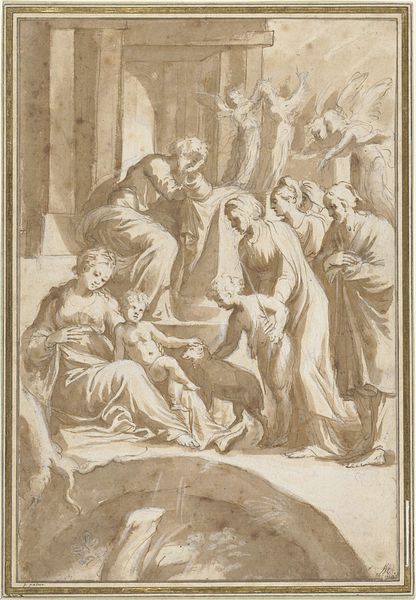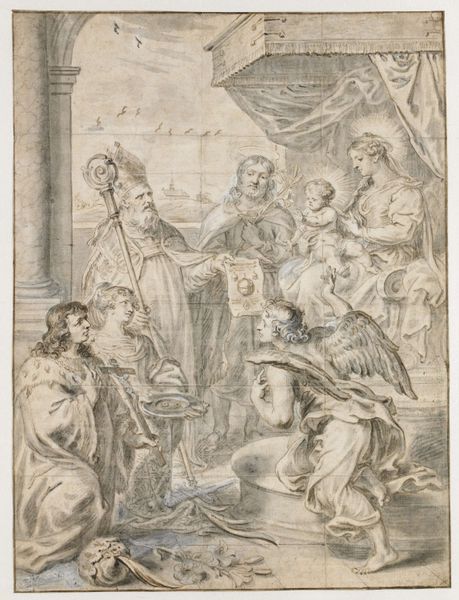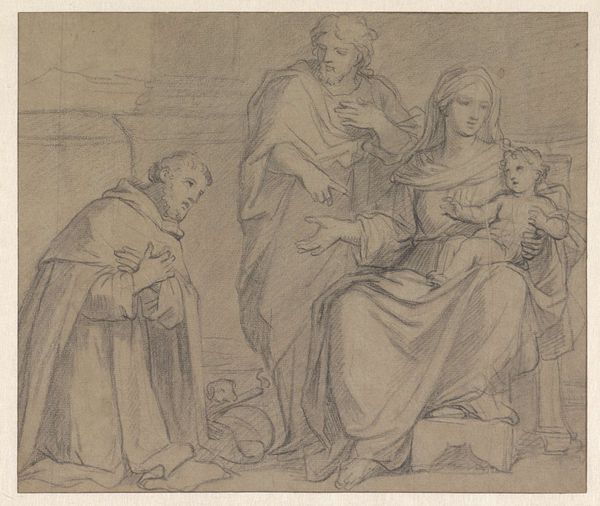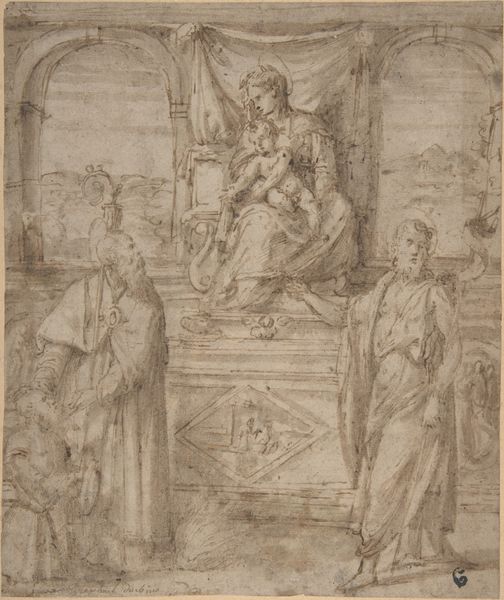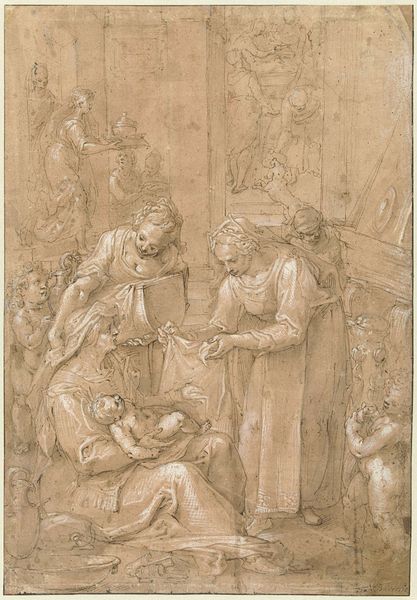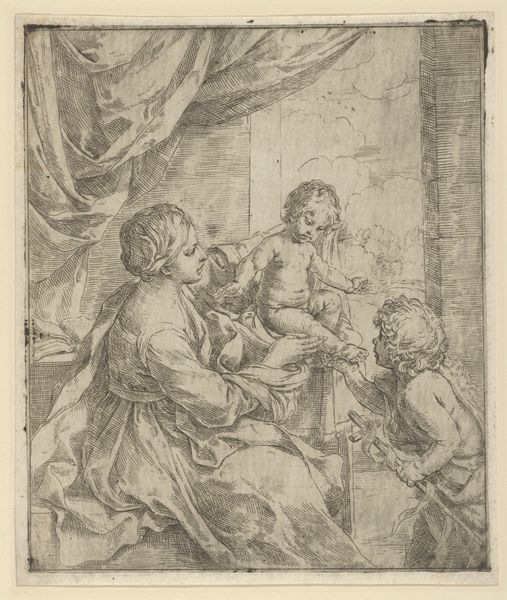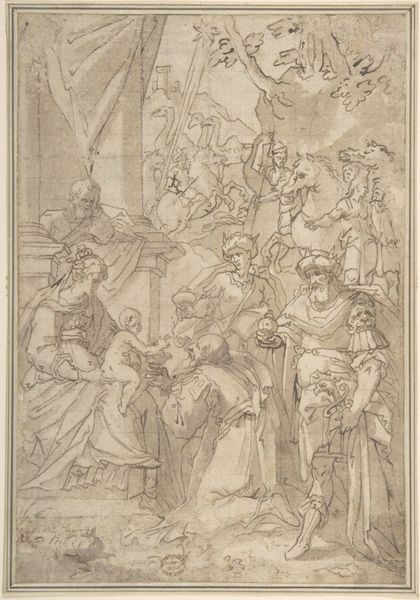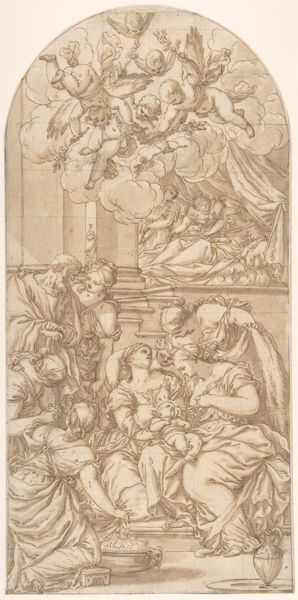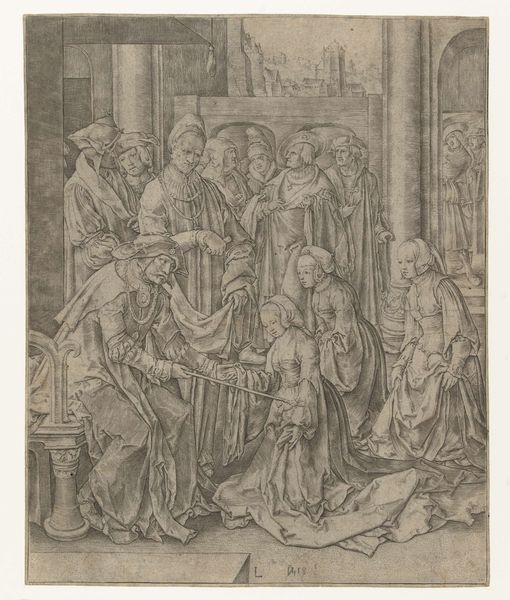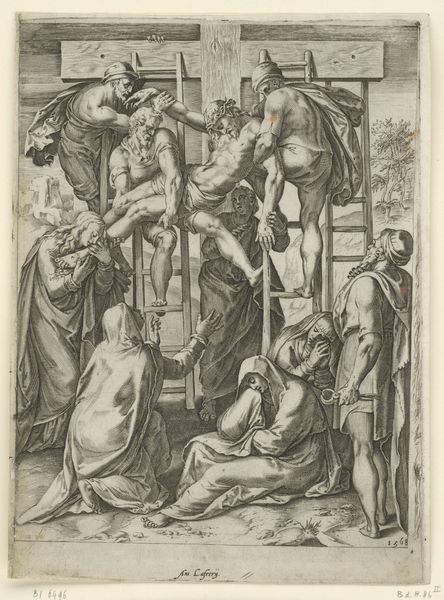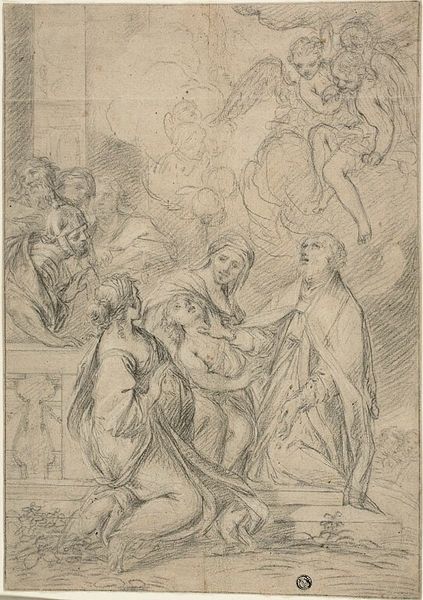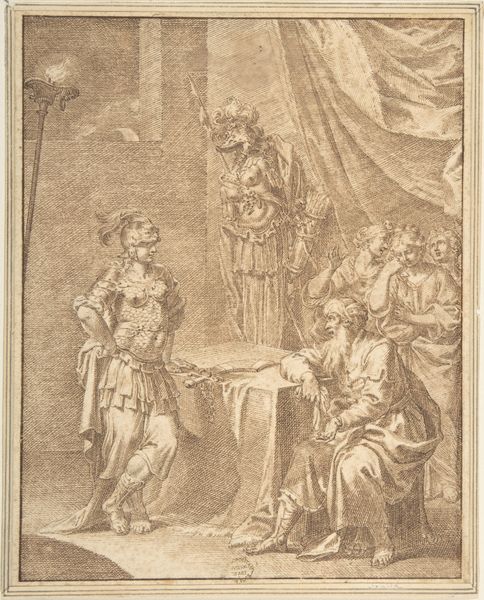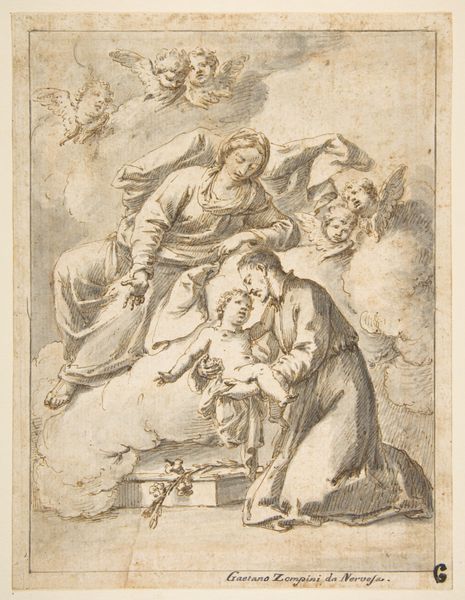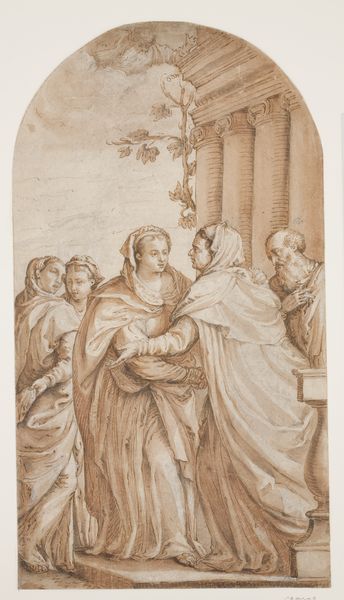
Ontwerp voor een altaarstuk met de Heilige Familie en Heiligen c. 1590 - 1595
0:00
0:00
francescovanni
Rijksmuseum
drawing, pencil, charcoal
#
portrait
#
drawing
#
pencil sketch
#
charcoal drawing
#
figuration
#
11_renaissance
#
pencil drawing
#
pencil
#
portrait drawing
#
charcoal
#
italian-renaissance
Dimensions: height 214 mm, width 134 mm
Copyright: Rijks Museum: Open Domain
Editor: So, here we have Francesco Vanni’s “Design for an altarpiece with the Holy Family and Saints,” created around 1590-1595. It’s a drawing, rendered in pencil and charcoal, and held here at the Rijksmuseum. The figures are graceful, but something about the unfinished quality really catches my eye. What draws you in when you look at this piece? Curator: The means of production are particularly intriguing here. Vanni's choice of readily available and relatively inexpensive materials like pencil and charcoal speaks to the practicalities of the workshop. This wasn't a precious painting intended for immediate display. It's a working document. Editor: So it's about functionality and access, less about the artistry itself at this stage? Curator: Exactly. Consider the social context: altarpieces were crucial commissions, fueling artistic production. This drawing shows the labor involved. Vanni, or perhaps assistants in his workshop, used these materials to develop and refine the composition. Note how the underlying grid suggests a system of scaling up the image later on; how does that affect your interpretation? Editor: It shows the labor in creating, the deliberate scaling, making it almost industrial. I guess I wasn't thinking about that element of the church needing art *produced* for its spaces. It makes the artist less of a "lone genius." Curator: Precisely! And by focusing on these elements, we resist the common inclination to only admire the finished artwork while giving thought to artistic processes. Editor: This gives a really valuable view into Renaissance artistic labor, thinking about the process as part of the work’s value. Thanks! Curator: A valuable process indeed, thank you!
Comments
No comments
Be the first to comment and join the conversation on the ultimate creative platform.
